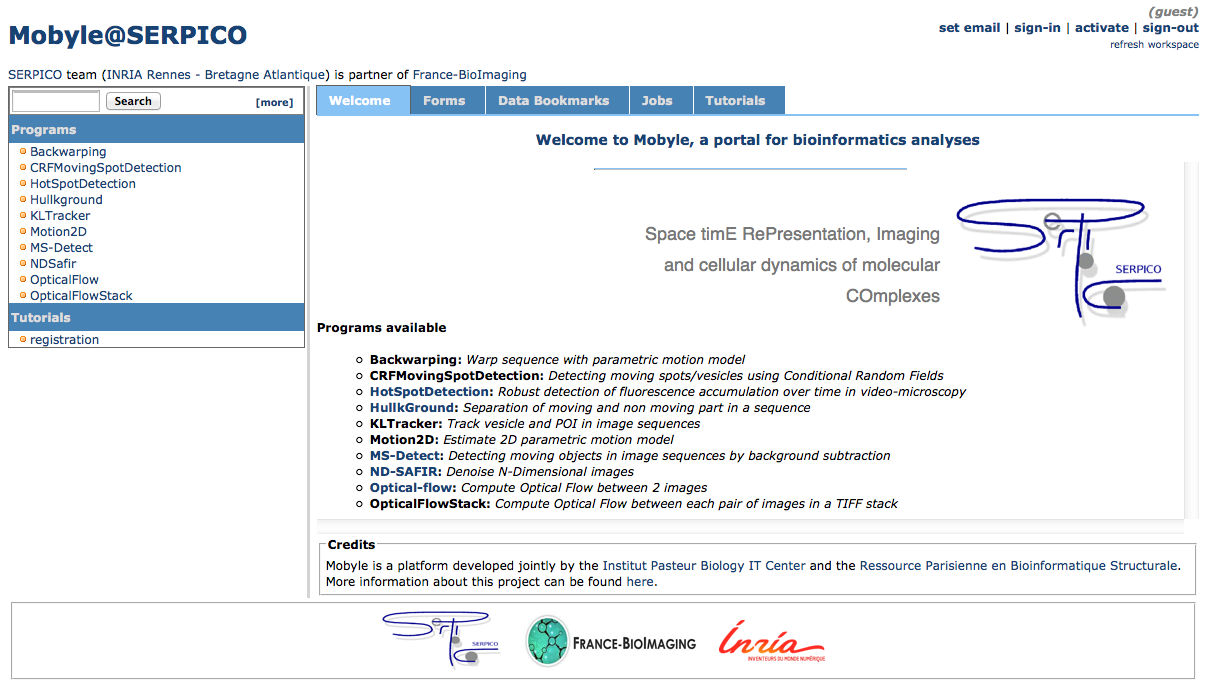Section: New Software and Platforms
Platforms
Mobyle@Serpico plateform and software distribution
The objective is to disseminate the distribution of serpico image processing software in the community of cell biology and cell imaging.
Free binaries: software packages have been compiled for the main operating systems (Linux, MacOS, Windows) using CMake (see http://www.cmake.org/). They are freely available on the team website under a proprietary license (e.g. ND-Safir and Hullkground are distributed this way at http://serpico.rennes.inria.fr/doku.php?id=software:index).
Mobyle@Serpico web portal: An on-line version (http://mobyle-serpico.rennes.inria.fr) of the image processing algorithms has been developped using the Mobyle framework (Institut Pasteur, see http://mobyle.pasteur.fr/). The main role of this web portal (see Fig. 2) is to demonstrate the performance of the programs developed by the team: QuantEv , C-Craft [14], Atlas [1], Hullkground [40], KLTracker [44], Motion2D [43], MS-detect [41], ND-Safir [6], OpticalFlow and Flux Estimation [14]. The web interface makes our image processing methods available for biologists at Mobyle@SERPICO (http://mobyle-serpico.rennes.inria.fr/cgi-bin/portal.py#welcome) without any installation or configuration on their own. The size of submitted images is limited to 200 MegaBytes per user and all the results are kept 15 days. The web portal and calculations run on a server with 2 CPU x 8 cores, 64 GigaBytes of RAM (500 MegaBytes for each user / Data is saved for 3 months).
ImageJ plugins: ImageJ (see http://rsb.info.nih.gov/ij/) is a widely used image visualization and analysis software for biologist users. We have developed ImageJ plug-in Java versions of the following software: ND-Safir [6], Hullkground [40], Motion2D [43], Atlas [1]. The C-Craft algorithm [14] has been developped for the image processing ICY platform (http://icy.bioimageanalysis.org/).
-
Contact: Charles Kervrann, Charles Deltel (Inria Rennes SED).
IGRIDA-Serpico cluster
The IGRIDA-Serpico cluster of 200 nodes is opened for end-users for large scale computing and data sets processing (200 TeraBytes).



